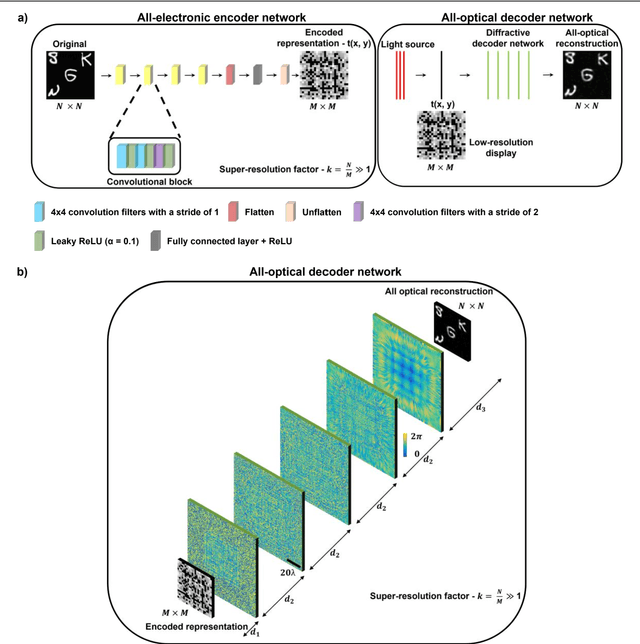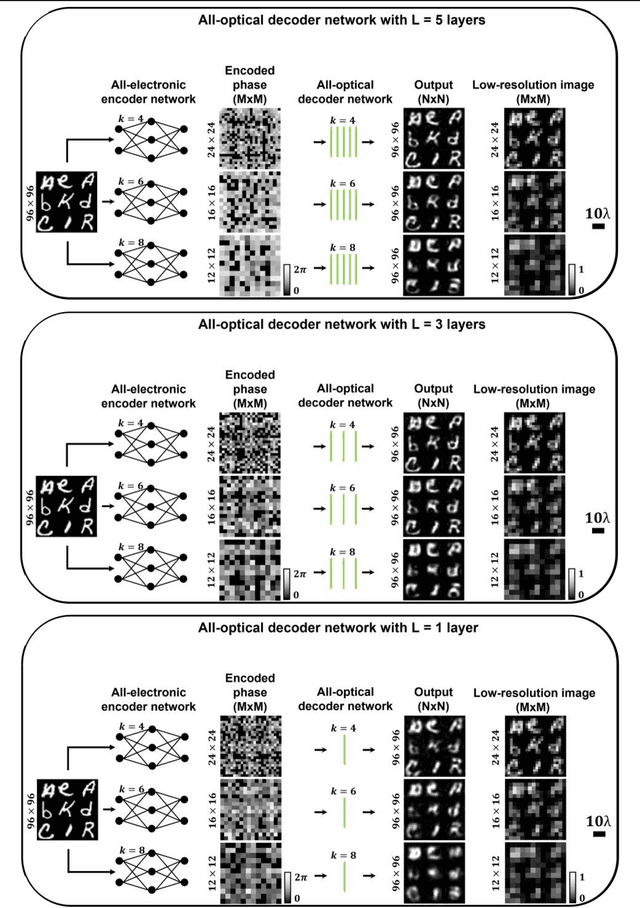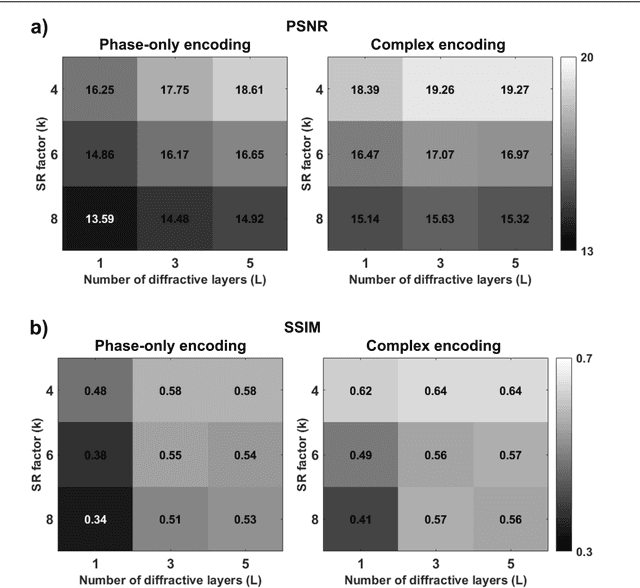Super-resolution image display using diffractive decoders
Paper and Code
Jun 15, 2022



High-resolution synthesis/projection of images over a large field-of-view (FOV) is hindered by the restricted space-bandwidth-product (SBP) of wavefront modulators. We report a deep learning-enabled diffractive display design that is based on a jointly-trained pair of an electronic encoder and a diffractive optical decoder to synthesize/project super-resolved images using low-resolution wavefront modulators. The digital encoder, composed of a trained convolutional neural network (CNN), rapidly pre-processes the high-resolution images of interest so that their spatial information is encoded into low-resolution (LR) modulation patterns, projected via a low SBP wavefront modulator. The diffractive decoder processes this LR encoded information using thin transmissive layers that are structured using deep learning to all-optically synthesize and project super-resolved images at its output FOV. Our results indicate that this diffractive image display can achieve a super-resolution factor of ~4, demonstrating a ~16-fold increase in SBP. We also experimentally validate the success of this diffractive super-resolution display using 3D-printed diffractive decoders that operate at the THz spectrum. This diffractive image decoder can be scaled to operate at visible wavelengths and inspire the design of large FOV and high-resolution displays that are compact, low-power, and computationally efficient.
 Add to Chrome
Add to Chrome Add to Firefox
Add to Firefox Add to Edge
Add to Edge